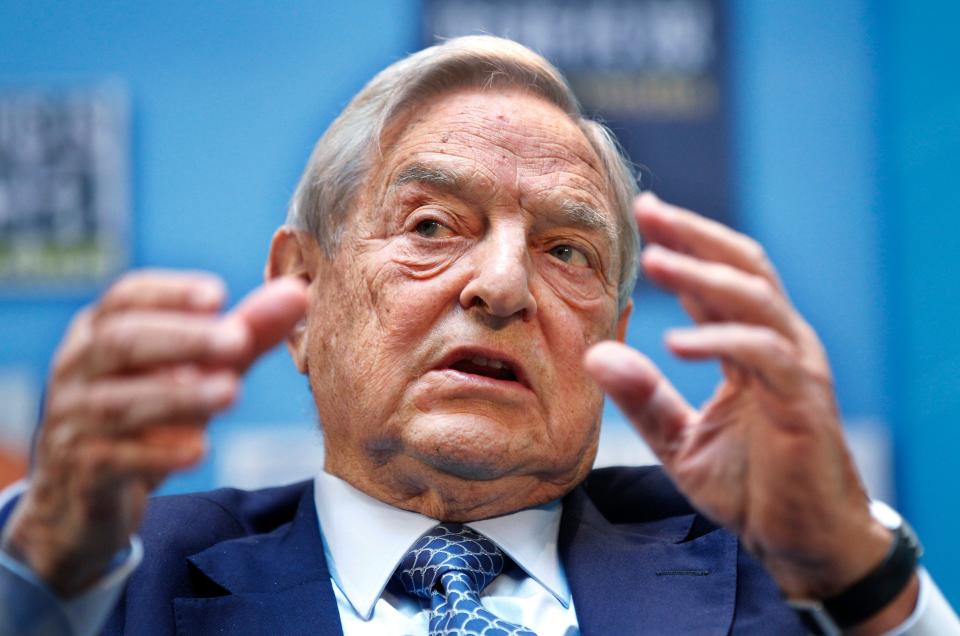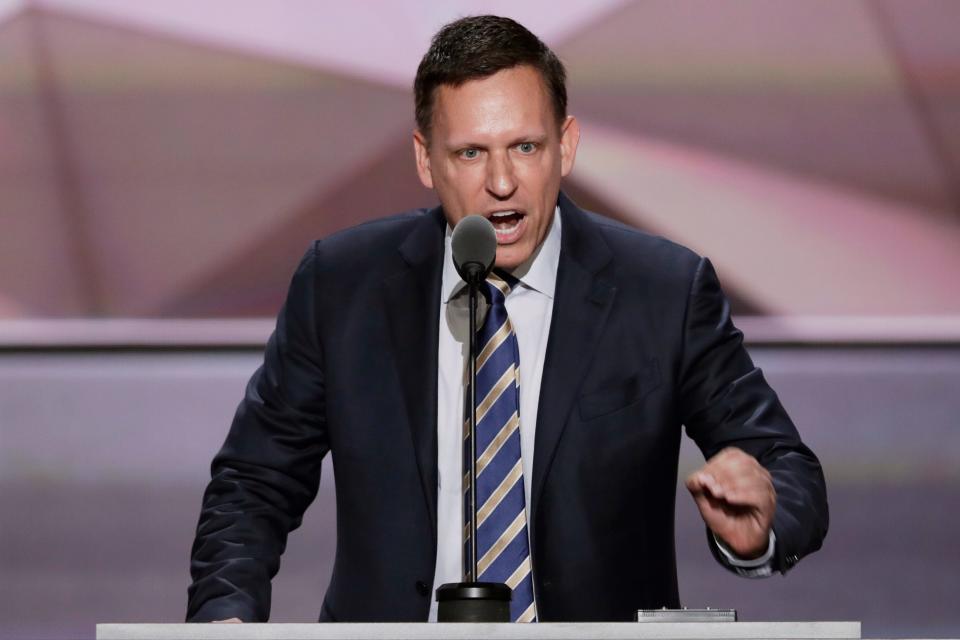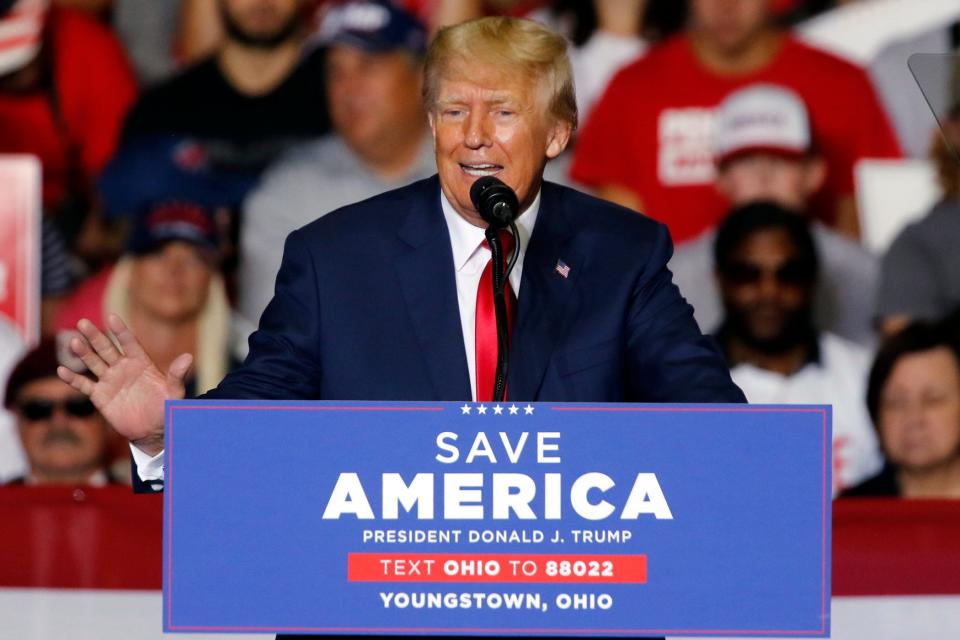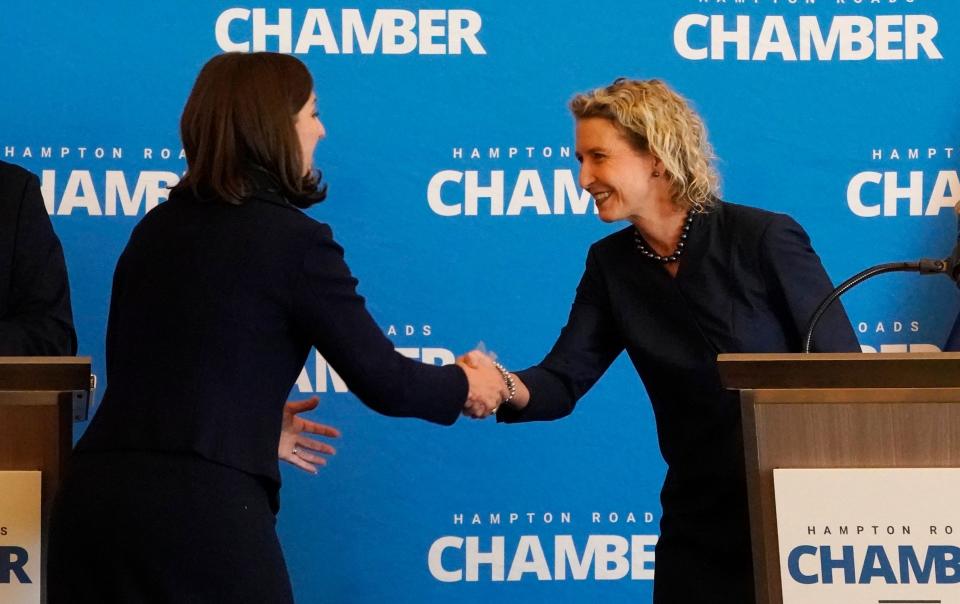The 2022 midterm elections could cost $9.3B. Where is the money coming from? Who benefits?
- Oops!Something went wrong.Please try again later.
Candidates and their supporters are spending billions of dollars trying to get their message out to the public to prove they deserve to take or keep their seat in the House or Senate.
By the time the election is over Nov. 8, their spending could top $9.3 billion, according to nonpartisan watchdog group OpenSecrets, a number that does not include any money spent on races for governor, secretary of state, or state legislative seats.
The candidate who spends the most money almost always wins the election. For the past 20 years, data from OpenSecrets has shown that the House or Senate candidate with the most money wins between 71% and 98% of the time.
2022 Midterms: Which party will control the Senate? Here's every seat up for grabs.
USA TODAY poll: Republican support rises ahead of Election Day, with inflation driving voters
USA TODAY set out to find out where the money was coming from, and where the money was going. Here are some takeaways:
Billionaires spent $1 out of every $10 in federal elections reported through July

A first-of-its-kind analysis by USA TODAY using data from OpenSecrets found billionaires and their spouses spent $1 out of every $10 that went into the political system this election cycle through July, including a hefty amount pumped high-stakes races that will determine what party controls Congress next year.
These ultra-rich donors, who make up just 0.0003% of U.S. adults, according to Forbes and U.S. Census data, are influential with Democrats and Republicans alike.
The top billionaire donors to Democratic causes included investor George Soros, cryptocurrency mogul Sam Bankman-Fried, and hedge fund manager Stephen Mandel. Republican billionaire donors include shipping supply company founders Richard and Elizabeth Uihlein, trading and finance guru Jeff Yass, and technology magnate Peter Thiel. Which billionaires are contributing the most? Read here.
Top billionaires in politics: Billionaires account for $1 of every $10 raised this election.
Republican Senate candidates benefitted big time from those billionaires

Republican candidates for Senate, many in high-profile races, benefitted from more direct billionaire contributions than their Democratic counterparts, USA TODAY’s analysis of OpenSecrets data shows. These include Sen. Ron Johnson of Wisconsin, Blake Masters of Arizona, J.D. Vance of Ohio, Sen. Lisa Murkowski of Alaska and Herschel Walker of Georgia.
Democrats also benefitted from billionaire money, but the donations went mostly through party committees and outside groups, not directly to their campaigns, making their impact more difficult to track.
The contributions up the pressure on candidates to do the billionaires' bidding at the expense of the rest of U.S. voters. Experts say mega-donors skew democracy toward their interests. Which candidates banked the most from billionaires? Read our story.
Billionaire boost: Cash windfall fuels Republican Senate candidates as election nears
'Millionaire's exemption': Obscure law could make Illinois’ governor's race the nation’s most expensive
Trump’s Save America PAC is funding candidates at the state level

Former President Donald Trump also poured money into candidates, but in a way that many national politicians did not: His political action committee contributed money to candidates in state-level races across the country.
Save America, created right after Trump lost the 2020 election to raise money to fight election fraud, gave money to 28 different candidates for state office, with many of those in Michigan, Arizona and Georgia, states where closely-watched congressional races will take place next week. Save America also backed candidates for 131 seats in the House and 18 seats in the Senate.
Loyalty: Trump's fundraising machine is building a Republican Party loyal to him
Lawyers, Arizona candidates, portraits: How Trump's PAC spent almost $4M in July
Legal Spending: Trump Save America PAC's legal spending skyrockets to $3.9M in August
$60,000: Trump PAC paid Melania Trump's fashion designer
Republican women PACs take on seasoned Democratic PACs. Will it be the difference?

A handful of different funds aimed to boost Republican women candidates seeking office this year, part of a broader effort to increase the number of conservative women elected to the House. Such efforts faced off against sometimes better-funded and better-organized PACs seeking to get Democratic women elected to Congress.
Democratic women currently outnumber Republican women in the House by a nearly 3-to-1 margin, and their biggest campaign funders are aligned with abortion rights. On the Republican side, women candidates focused on inflation and border security when making their case to voters. Will 2022 be the "Year of the Republican woman"? Read our story.
Women in Politics: Outnumbered Republican women raise cash to combat well-funded Democrats
Year of the Republican Woman: The GOP ate into Democratic majority in 2020
This article originally appeared on USA TODAY: Election contributions: How money is flowing from donors to candidates

